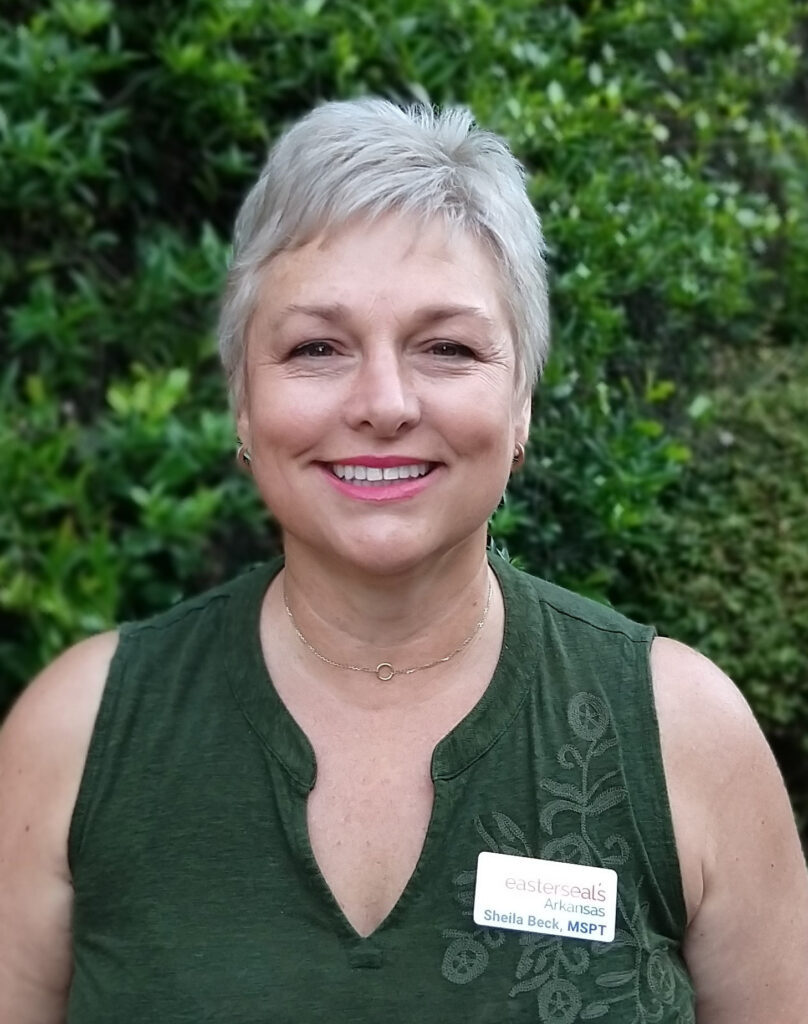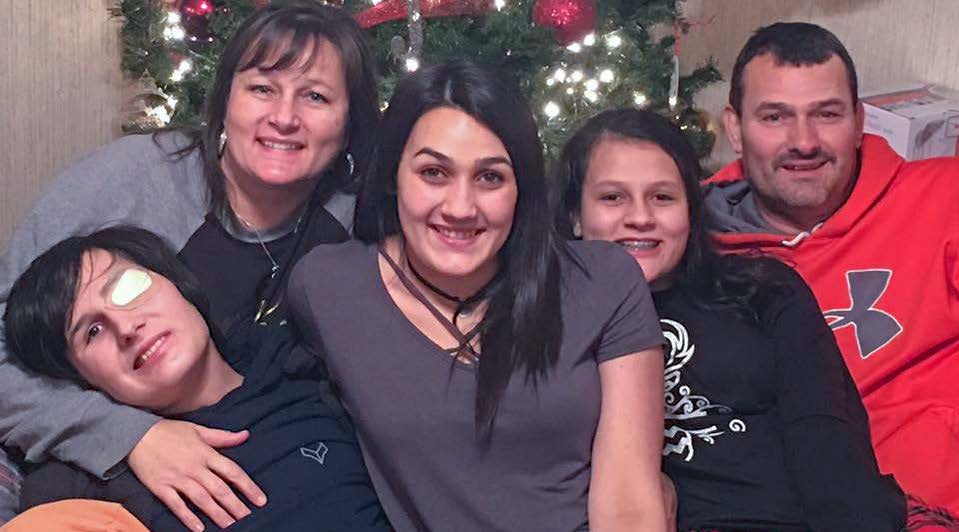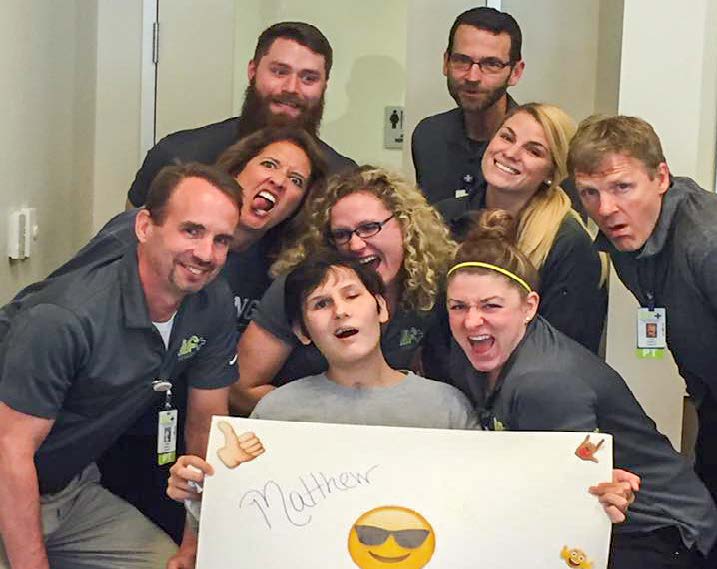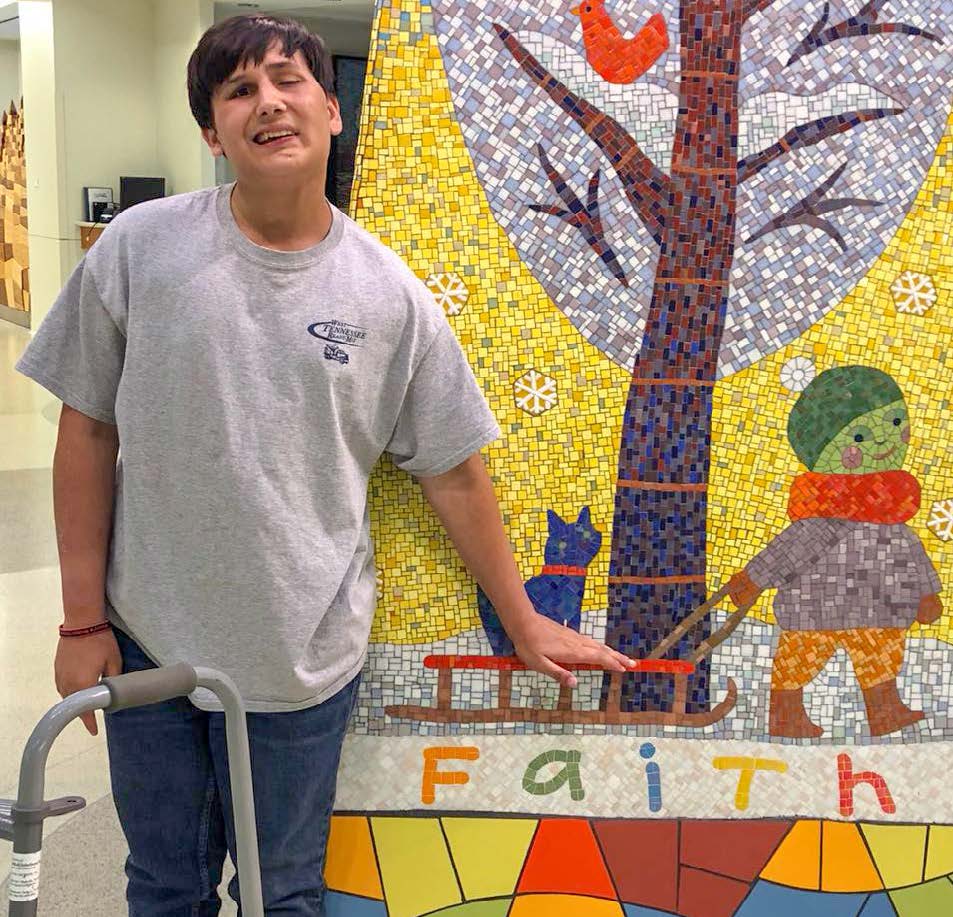Ask the Specialist: Finding Balance After Brain Injury
By: Sheila Beck, MSPT, CCI, CBIS

Difficulty with balance is a problem for 30 percent of brain injury survivors. The part of the brain injured, the severity of the injury, and damages to other parts of the body may all influence your balance. Physical therapists (PTs) often help patients with balance issues. When a patient sees a PT, they will first do an assessment to find all possible causes of the issue.
Physical therapists are aware that many things can cause balance issues. One of these things is the medicines that the patient is taking. Many common medicines can cause dizziness and vertigo. Antibiotics, medicines for blood pressure, seizures, pain, and sleeping can all have an effect on balance, especially when two or more are combined. When you first notice problems with balance, ask your doctor if any of the medicines you currently take could be the cause. A simple change in medicines, dosage, or the time of day taken may help.
When talking to your doctor, it is helpful to have a detailed list of all your symptoms. This list should include:
- Names of all medicines you were taking at the time (be sure to include over-the-counter and homeopathic medicines, too)
- What you were doing when the symptoms appeared
- Time of day of the occurrence how often this is occurring
Another concern for balance problems is drinking alcohol, whether you are taking medicines or not. Alcohol can make some medicines less effective, but it can also increase the effects of others, which can cause falls or other complications.
Alcohol use is not recommended after a brain injury, whether you’re taking medicines or not. Evidence shows that the brain has the ability to heal for many years following a brain injury. However, alcohol consumption can slow or stop the healing process for the brain.
Once your medical team determines the cause of your balance and dizziness issues, they will work with you to treat the cause or causes. It takes a team and you are the most important member of that team. Working together we can help you to improve and regain your balance in life.
Resources:
https://synapse.org.au/fact-sheet/balance-problems-and-dizziness-after-a-brain-inury/
https://msktc.org/tbi/factsheets/Alcohol-Use-After-Traumatic-Brain-Injury
Want to suggest a topic? Email us at braininjury@uams.edu.
A Caregiver’s Perspective: Matthew Howard’s Story
As Told to Kimberly Lamb
I know that none of this would have been possible without our faith in God.
Vickie Howard

On March 16, 2016, 14-year-old Matthew suffered a severe traumatic brain injury when he lost control of his all-terrain vehicle (ATV) while riding on his aunt’s farm. After being found unconscious in a pasture, Matthew was air lifted to Lebohneur Children’s Hospital in Memphis. Upon arrival, he was intubated and a drain tube was placed in his head to measure and adjust the pressure on his brain.
Matthew’s family soon learned that he had suffered a diffuse axonal injury (a tearing of the brain’s connecting nerve fibers) and was bleeding throughout his brain. In addition, his facial nerve was compressed and he had many fractures to his skull, especially his face. Matthew’s mom Vickie said, “The first three weeks that Matthew was at Lebohneur, the doctors told us that he would not survive.”
On June 1, Matthew, still in a semi-coma, was moved to the Shepherd Center in Atlanta. Vickie said, “A week before the transfer to the Shepherd Center, the doctor sat me and his father down and explained to us that if Matthew could wave to us in May of 2017, then we should be thankful. We told the doctor that we would be thankful.” Leaning on their faith, Matthew’s family continued to pray for his recovery.
After about two weeks at the Shepherd Center, Matthew started waking up. Vickie says, “I was with him in his room after therapy and he lifted his foot up like he was trying to put it in my lap. This was the first time he had shoes on since his accident. Then he reached his hand down as if he were trying to take his shoe off. I asked him if he wanted me to remove his shoe. I said to take them off like you used to. I placed one foot on the top of the other foot, and told him to push it off with his other foot, and he did it!” This was the first sign that Matthew gave of understanding what was being said to him.
As Matthew continued to show signs of improvement, he was allowed to continue with his therapies.
In the beginning, Matthew could not hold his head up, so his care staff altered his wheelchair for support. About a month into therapy, he began nodding his head to music, and later began to nod for yes and no. About a month later, he said “Dad”, his first word since the accident. Vickie says, “It was just a breath tone, no voice. We praised God!”
Matthew was discharged to outpatient care at the Shepherd Center on Aug. 16, ready to begin the next stage of his recovery. Matthew learned to breathe, walk, talk, swallow, and socialize all over again. In addition to the therapies, he underwent several surgeries to regain movement in the left side of his face, which remained paralyzed from the accident.
He was released from the Shepherd Center on Oct. 16, 2016, and has returned twice for additional therapies. Vickie said, “The rehabilitation provided results. Healthcare facilities and the insurance company put a time limit on how long he will continue to heal, but we don’t.” While Matthew still faced many challenges ahead, Vickie focused on his rehabilitation. She believes that his healing will happen in “God’s timing.”

Once home, the family, including his sisters Morgan and Mendi, began helping Matthew work toward living a normal life. Matthew started his freshman year of high school, but the changes were drastic. He did not have any memory loss about life prior to the accident, which made accepting his current life more difficult. Vickie said, “Before his accident, he was the popular guy on campus. He has a hard time coping with the way things are today.”
Matthew sometimes has outbursts and a hard time controlling his emotions. His family understands his frustration and they know how far he has come. He now spends time texting his girlfriend, playing video games, and going to church. Like any typical teenager, Matthew does not care for chores, although he does fold and put away his laundry.
Matthew still has physical losses from his accident. While he has regained some
movement in his face, he still cannot keep his left eye open all of the time. He is now deaf in his left ear, but he can hear well in his right ear. The trauma to his pituary gland also caused diabetes insipidus, which means that his body is unable to control how it handles fluid.
His progress is unmistakable, too. Vickie remembers that Matthew’s care for almost eight months was similar to that of an infant. Over the last four years, he has relearned how to walk with a walker, talk and hold conversations, and
manage his own hygiene.
Matthew’s family went from hearing that he would not survive his injuries to hearing that Matthew would “never be able to get out of the bed or even know he was in this world.” Nevertheless, they saw Matthew make a miraculous recovery. Vickie said, “I know there is still a lot to be addressed with Matthew, but today those mountains we crossed seem like little ant hills. I know that none of this would have been possible without our faith in God.”
In a Caregiver’s Words
Matthew’s mother and caregiver, Vickie, shares with others who are helping a loved one recover from a traumatic brain injury.
- We kept music going in the background so that Matthew could hear something familiar instead of the machines.
- During the coma, we talked to Matthew as if he was awake and able to talk back to us. I explained to him many times what had happened to him, and I reassured him that he was going to be ok.
- We allowed familiar voices through speakerphone conversations with friends and family.
- We accepted letters and read them to him. I shared our story on social media each day. This allowed people to pray, and I never felt alone.
- We had a praying army. People came together, even those who had not prayed in years or spoken to each other in years. We developed a completely new family.
- We acknowledged the good things with the bad, and we are always thankful and humble.
- We never gave up.

Additional Tips for Caregivers:
- Be involved in the medical plan so you understand the plan
- Document your loved one’s changes, because recovery is a rollercoaster ride
- Expect each day to be different
- Ask questions, and if you don’t understand the medical terms, get someone to explain them
- Be your loved one’s advocate, and push for the maximum treatment and benefits possible.
- Don’t expect things to be EXACTLY as they are explained to you
Want to share your story? Email us at braininjury@uams.edu.
Social Security Disability Pointers: Social Security Can Help with Your Plan for Achieving Self Support
Phylis Dills, Social Security Public Affairs Specialist in Little Rock
If you rely on Supplemental Security Income (SSI) payments or Social Security Disability (SSDI) benefits and want to start working or return to work, we can help.
Plan for Achieving Self-Support (PASS) is a rule under SSI to help people with disabilities return to work. You may benefit from a PASS if:
- You currently recieve SSI and would like to go to work, or;
- After setting aside income or resources to pursue—or achieve—a work goal, you could qualify for SSI.
How does a PASS help someone return to work?
- We base SSI eligibility and payment amounts on income and resources (things of value that the individual owns).
- PASS lets a disabled individual set aside money and things he or she owns to pay for items or services needed to achieve a specific work goal.
- The objective of the PASS is to help disabled individuals find employment that reduces or eliminates SSI or SSDI benefits.
You can read all about the PASS program at www.ssa.gov/pubs/EN-05-11017.pdf.
In order to qualify, your plan must be in writing and Social Security must approve it beforehand. To get started, contact your local Social Security office for an application (ask for form SSA-545-BK).
Or, you can access the form at www.ssa.gov/forms/ssa-545.html. There are many people who can help you write a PASS, including a Ticket to Work service provider, a vocational counselor, or a relative.
Social Security’s Ticket to Work (Ticket) program supports career development
for SSDI beneficiaries and SSI recipients who want to work and progress toward
financial independence. The Ticket program is free and voluntary.
Please call the Ticket to Work Help Line at 1-866-968-7842 or 1-866-833-2967
(TTY) Monday through Friday, 8 a.m. to 8 p.m. ET to learn more about the Ticket program.
Your job isn’t just a source of income — it can be a vehicle to independence or a beginning to fulfilling your dreams. Let Social Security’s PASS help you achieve your goals.
Please be aware that past newsletter issues may contain outdated information. For the latest updates on resources and events, visit our website or contact us at braininjury@uams.edu with any questions.
